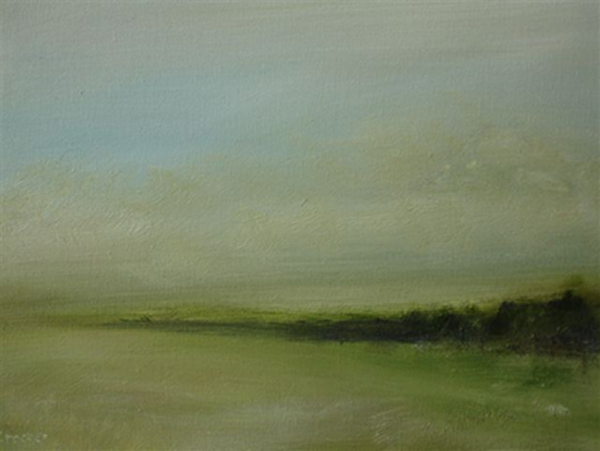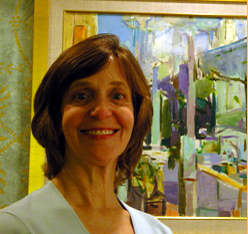
Taking Care of Ourselves:
A Wake-up Call
by Carolyn S. Ellis
“It’s all in our bodies; we hold so much.”
Thalia Pananides, muscular therapist
Taking care of ourselves. We all know it‘s important, but what does it take?
A cancer diagnosis with some chilling odds forced me to pay attention to my health in new ways. Beyond getting my annual physicals and dental check ups, I had to discover how to take care of my body, mind and spirit. I wasn’t worried about pampering; I was working on staying alive.
“Women take care of everyone else first; they get to themselves when it’s crisis mode,” says muscular therapist Thalia Pananides, LMT. “We don’t feel worthy to take a walk or take time out. Then we hit a brick wall, and we don’t even realize we have hit it.”
Sixteen years ago I was treated for ovarian cancer with surgery and overnight hospitalizations for chemotherapy. My medical care was excellent, but when treatment was over I was very worried about the odds that only 2 in 10 women with ovarian cancer make it to five years.
I believe the best time to embark on a healing journey is when one is well. It’s tempting to return to the old habits and attitudes following treatment for an illness like cancer, but to wait for a relapse is folly. There’s a benefit to the fear that walks with us early in recovery. Fear is very motivating.
I pledged that I would do all I could to get well and stay well. I wanted to recover from chemotherapy and change the physical and psychological milieu that had allowed cancer to overwhelm me. Maybe my efforts would work and maybe they wouldn’t, but the journey would prove to be interesting and energizing.
In the mid-1990s, alternative medicine was new to me and undiscovered by mainstream media. As I read and talked with people, massage recurred as an important source of healing.
Several years before diagnosis, I had tried massage but had been unable to stay on the table for a 30-minute session. There I was, nominally healthy, but unable to relax and devote one half-hour to self-care!
Thalia was the third massage therapist I tried. I liked her background as a registered nurse and her training in the Ben Benjamin technique .
She viewed each client as a whole person; I sensed that she believed I could get well and stay well, at a time when I wasn’t getting that feeling from my conventional medical doctors.
 |

Thalia was my Heidi, the young heroine of Joanna Spyri’s beloved book, who brings her cousin Clara to Alm-Uncle’s mountain cabin and helps her to walk again. (Editor’s Note: See Carolyn’s article in the Spring 2010 issue of this magazine)
Sessions with Thalia begin with a conversation. “It’s not just about what you say is hurting,” Thalia always says. “It’s about who and where you are as a person.”
Massage addresses our emotional health. “The body has memory, and massage can cause the release of emotions that someone hasn’t been able to deal with,” Thalia says. “People sometimes break into tears on the massage table."
I easily made it through a one-hour treatment and returned regularly, letting Thalia’s healing presence sustain me through many scary moments.
I recognized that having cancer involved grief, for the loss of my life before diagnosis. I also realized that I needed to grieve more fully for my mother’s death from breast cancer when I was seventeen.
I enrolled in a workshop based on Hope Edelman’s book, Motherless Daughters: A Legacy of Loss. The company of other women who were children when their mothers died was enlightening and sustaining.
I know other long-term survivors of ovarian cancer, who practice self-care in many ways. They have changed their diets to avoid sugar and wheat, bought something special for themselves, or traveled to Chartres to walk the labyrinth. They use Reiki or practice yoga or meditation. They have met the toughest challenge: making self-care a priority.
Theories differ about whether or not massage is appropriate for people with cancer. One says massage is beneficial, and the other says massage can cause cancer cells to spread. Women should consult their physicians to help decide what’s best for them.
“I have found massage to be a wonderful adjunct to chemotherapy and radiation,” Thalia says. “I modify my technique to be soothing and healing for those who are uncomfortable or in pain.”
To learn more about healing touch and its spiritual roots, I studied with Patricia Warren.
At a monastic retreat house on Boston’s North Shore, we learned about people’s innate healing abilities, the power of being present for others, and paying attention to our own needs. We practiced asking permission to touch before laying on hands and how to offer comforting contact.
When you have a minute, notice how you feel when you hug someone you love or your cat or dog. That reciprocal energy is there for our taking, requiring little more than awareness.
Hold hands. Hug someone special. Ask an ailing friend if you can put your hand on her arm. As Thalia likes to say, “Life breaks all of us, and many become stronger in the broken places.”
Self-care keeps Thalia from burning out after maintaining her practice for 17 years. “My clients give me so much,” she adds, “My Reiki training lets their energy and mine be a flowing circle.”
May life’s challenges help us all find ways to take care of ourselves and share our healing presence.

Carolyn Ellis has been well since initial treatment for ovarian cancer in 1994; she is grateful and pleasantly surprised to be one of the 2 in 10 who make it to five years.
She writes to increase awareness of ovarian cancer because early detection is important.
Carolyn wants to help women dealing with ovarian cancer focus on positive possibilities because hope is critical to recovery. She can be reached at staywell.ce@gmail.com or www.2in10.net